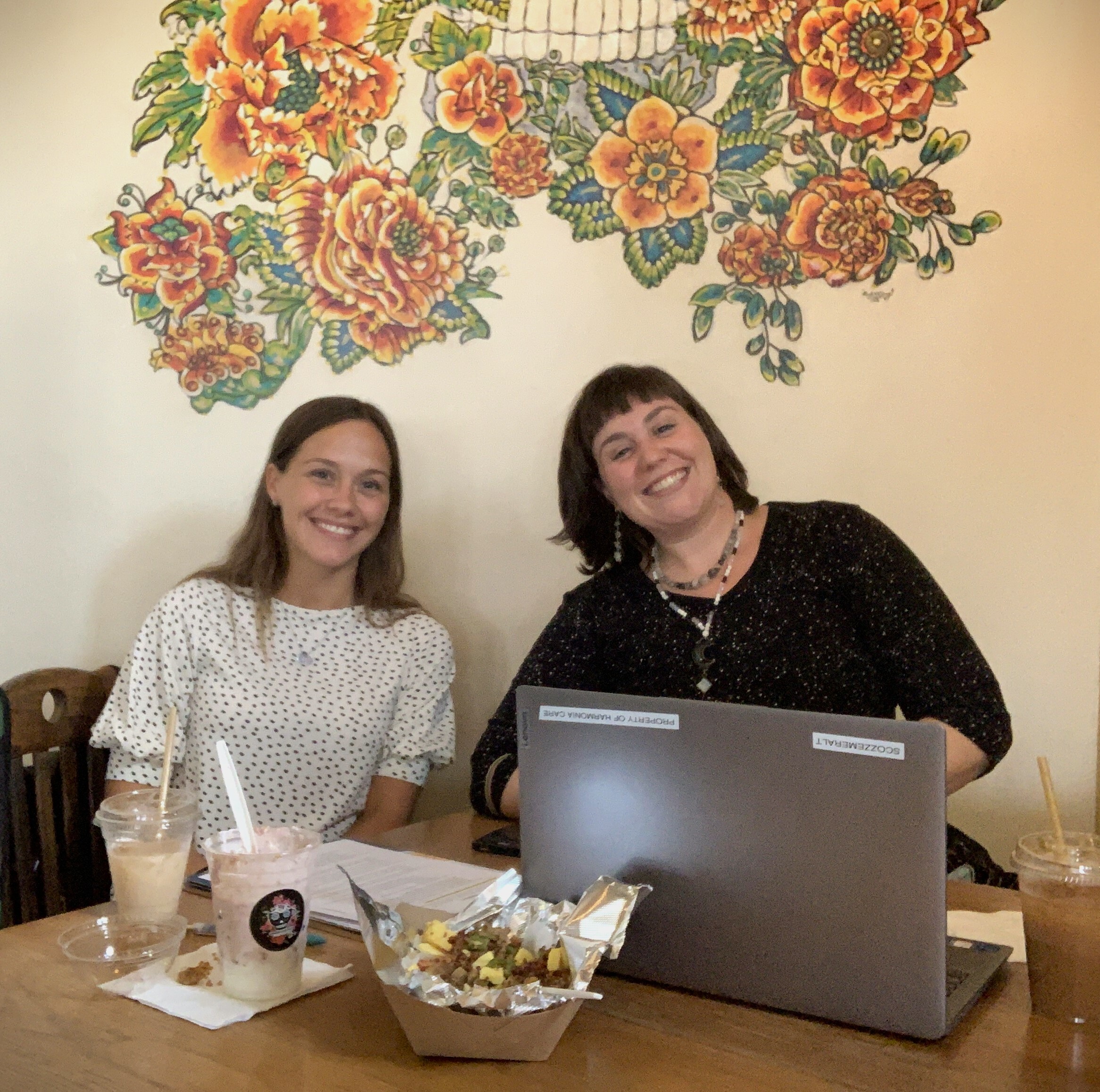




Select a headline to read more.

August 17th, 2023
Coffee Talk with Sarah Cozzemera
Our fourth Coffee Talk session is with Amanda Hucksoll from Reality Check for Tobacco Free Erie + Niagara.
♦
WHAT: Amanda + I sat down at UNDERGROUNDS COFFEE HOUSE for an engaging and enthusiastic discussion about youth mental health resources and the effects of tobacco + nicotine in peer-to-peer social environments. Amanda dedicates her time working in communities across Erie and Niagara counties, supporting the next generation of smoke-free leaders, upholding NYS Tobacco Free Norm through youth engagement and mobilization. Over the years, Amanda has volunteered and worked alongside local organizations to support historically underserved populations. She firmly believes that young people are society’s most valuable assets and dedicates her professional career to uplifting and supporting communities in achieving their fullest potential. Amanda graduated in May 2019 with a Bachelor’s in Human Services from Hilbert College, and has been working in tobacco control for nearly four years. She was nominated the “NYS Western Region Representative” for the New York State Dept. of Health Tobacco Control Program in 2021 and is still serving in that position.
♦
Q: What is “Reality Check for Tobacco Free Erie and Niagara”? Why is prevention work important?
A: Working together, children, teens, and young adults do community outreach to spread the truth about tobacco and e-cigarettes. The average age of a smoker in NYS is 13 years old. Prevention work is never cut and dry… It’s very intersectional. Tobacco is the leading cause of preventable death and disease. Smoking/secondhand smoke kills over 22,000 people each year. And it is not an equal opportunity killer. Menthol * flavors * are drivers of youth smoking and maintaining an addiction.
Tobacco use is also linked with mental health. People who report "mental distress" also have higher rates of smoking + using tobacco products. In NYS, out of the 12% of adults who smoke, almost 20% of those people report experiencing "mental distress". Youth usage of tobacco products is often linked to the stressors of high school and factors in social environments. While 25.6% of high school students have used tobacco products, LGBTQIA+ students are two times more likely to use them.

♦
Q: Do you have any personal experiences accessing mental health resources that you’re willing to share?
A: Not anything specific, but I was once a student, we all were. I can vividly remember how much pressure there was to excel in every area in my life: academics, sports, my character and who I wanted to in essence become. Ten years later, and I reflect and empathize with the younger generations.
♦
Q: What is the importance of mental health in terms of safe and effective programming?
A: There are a few things I can say about that:
1) It's important to work at meeting the students where they are at. Life happens. Life is tough.
2) Teens face a lot of pressure; family responsibilities, social media, school, hobbies, jobs, the future. And, they don't have the same coping skills that adults have. Plus their brains are still growing -- understanding that means you can communicate with teens better.
3) Many students I work with have shared that vaping is a popular way to gain friends, become social, and fit in. They use vaping as a social tool… which in turn, fuels addiction. ESP. after years of COVID and isolation.
4) Nicotine can amplify feelings of anxiety and depression. 81% of 15-24 year old's surveyed who use e-cigarettes said they started vaping to decrease stress, anxiety, or depression. So, if we're going to help teens stop vaping, they need support with real mental health strategies for addressing anxiety and depression.
♦
Q: What smoking resources are you aware of in the community? What is out there to help youth + adults?
A: There are many resources for this -- it depends on what works for you. Here are some options:
1) NYS Smokers Quitline 866-NY-QUITS (866-697-8487). You can talk to a Quit Coach on the line and apply for a free NRT starter kit.
2) Drop the Vape is a TEXT MESSAGING quit program. You text "DroptheVape" to 88709 and they anonymously create a text-based interactive support system. It is specific for ages 13-17 and also 18-24.
3) Find people you can trust and confide in. Reinvest time, energy, and money you have from not buying tobacco products into your hobbies. It takes time but changing your habits will change your behaviors and eventually being smoke / tobacco free will feel normal again.

THANK YOU Amanda for your time + so generously sharing knowledge and resources about local smoking cessation support. You can contact Amanda via email for more information: ahucksoll@caiglobal.org and check out the website for Reality Check for Tobacco Free Erie + Niagara.
THANK YOU for joining us + check back in for our next conversation. As always: may your coffee be strong and your knowledge of community support systems even stronger.
PS. Seriously cannot describe how cool UNDERGROUNDS COFFEE HOUSE + ROASTERY is...the coffee is fantastic, the food is delicious, the murals, the photography, the mug wall...it's such a beautiful space. Get there. Find them on Instagram: @ugcoffeehouse.